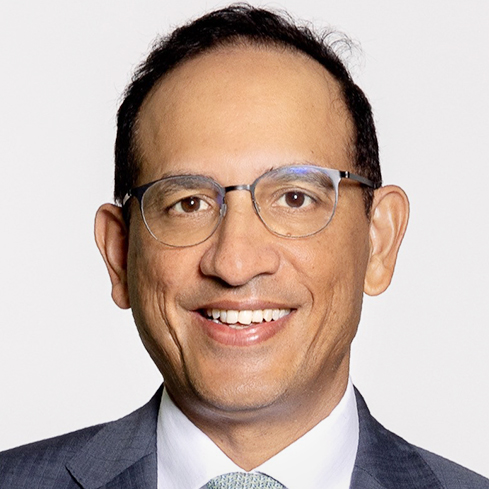Growing from strength to strength, the global e-commerce industry offers enormous opportunities as consumers and businesses increasingly look online for goods and services. This is particularly true in Asia where the middle-class segment is growing and businesses are becoming more sophisticated. Already, the region represents the world’s largest e-commerce market, with revenue this year projected to reach US$1.81 trillion or 31.6% of global total, according to data from Statista. Driven by the high-growth markets of China, India, Indonesia and Vietnam, e-commerce sales in the region are forecast to reach US$2.81 trillion by 2027.
Realizing the huge prospects, both traditional businesses and nascent digital marketplaces have sought partners to support and improve their transaction flows. These partners include banks such as Deutsche Bank which offer merchant solutions to enable businesses to nurture a better e-commerce customer experience with new payment acceptance tools and global electronic payments processing, for instance.
“Global merchants have two large overarching challenges to tackle nowadays, one being the requirement for enhanced agility and flexibility. We have local wallets and global wallets; we have local instant payment rails and direct debt rails. It is a very fragmented and ever-changing payments landscape especially in Asia-Pacific,” shares Oliver von-Quadt, head of merchant solutions, APAC and the United States, corporate bank, at Deutsche Bank. “The classic check-out processes and payment processes, which are a traditionally operational-driven process, now need to be customer-friendly, seamless and in a good design.”
Other areas CFOs and treasurers should pay attention to when looking to enhance their e-commerce flows include being able to coordinate different departments to ensure a smooth transaction flow for the online business.
“At the end of the day, of course, data and reconciliation, which are always a challenge for treasurers with various e-commerce shops globally. You have different data streams, you have Excel sheets – they all need to be put into one bucket and reconciled. That agility has to come into play, and even more so and even more critically, is the need for multi-disciplinary teams,” highlights von-Quadt. “Treasury teams today, for example, are stretched into a new world of technological solutions to accept payments for collections. At the same time, if you look at the sales team, that has now stretched into the e-commerce challenge away from classic channels. If you look at the technology teams of merchants, they have to get used to working with external technology providers.”


Tech-loving experts
Looking to solve the fragmented payments landscape and operational pain points facing their merchant clients, Deutsche Bank has been a key adopter of technology and partnership model to better understand how the bank could add value to the business.
“We have built a technology-loving team of experts in the house that engage actively with all our merchants in order to understand the digital journey. We need experts who not only know enough about banking but also understand the revenue model and implications for collections, and think beyond classic banking and treasury,” says von-Quadt.
One area the bank has been successful in is working with external parties and forging partnerships to streamline the whole payments flow for merchant clients. “Right at the start, we had a determined mindset towards partnerships. We look into three different technology providers who are nimble and have the agility that only a fintech could have and a large bank has challenges with,” explains von-Quadt. These include regional and country specialists who know what is happening on the ground not only from a regulatory point of view but also from a payments landscape point of view. The third type of partnership involves payment instrument specialists, the fintechs that focus on special instruments such as QR codes.
“The value proposition cannot just be only partnerships. It should be on creating an end-to-end solution that is very simple for our clients to connect to and invisibly enable a very specific wallet in a very specific country in APAC without the difficulties of reconciliation of the different payment methods. That’s the value proposition we bring to the table all across APAC,” ” he stresses.
Earlier this year, Deutsche Bank acquired a strategic stake in Australian paytech company DataMesh Group, which can help the bank enhance its services to merchant clients in the region.
With DataMesh’s Unity payment orchestration layer, the bank can operate seamlessly with individual acquirers in different countries, enabling merchants to accept payments through online methods within individually regulated currency zones.
“We take away connectivity to local PSPs (payment service providers), aggregators or even different ones in one country. That is done by us. Aside from that, onboarding a PSP even for a global merchant is a challenging issue. They have governance frameworks they need to adhere to. We take care of that. The client doesn’t need to worry about picking the right partner that ticks all the boxes that a properly governed global company has to take,” says von-Quadt. “We take away the complexity out of entering Asia with all the different payment methods and regulations. At the same time, we keep the local flavour by having those local partners. We keep the local flavour but take away the pain points the local flavour usually brings along.”
Data insights
Aside from taking care of merchant reconciliation through the use of partners, the bank is adding value by providing data insights to users on the platform, whether they pay on time, and the frequency of transactions on the merchant marketplace. “Merchant solution is extending from a banking perspective. Cash is usually managing money that is already in the house. Merchant solutions take care of the collection. This is a new area in the sense that it comes before the actual treasury part happens. On the lending side, we are working with products that provide lending capabilities upon checkout such as ‘buynow, pay later’ for corporates,” he says.
Demand for merchant solutions is expected grow in Asia as the competitiveness of marketplaces is expected to intensify. “In general, corporates look at a marketplace mostly because they understand that owning the customer lifecycle is very relevant. There is no better way of doing that than having a marketplace and continuing to have a commercial relationship with the client post the initial sale. The challenges for marketplaces are defining the right business model that is appropriate it needs to be attractive for sub-merchants to join the marketplace,” he says.
Going into the future, von-Quadt believes solutions around cross-border payments – whether it be involving global or local wallets – will be something that the industry needs to keep an eye on.








